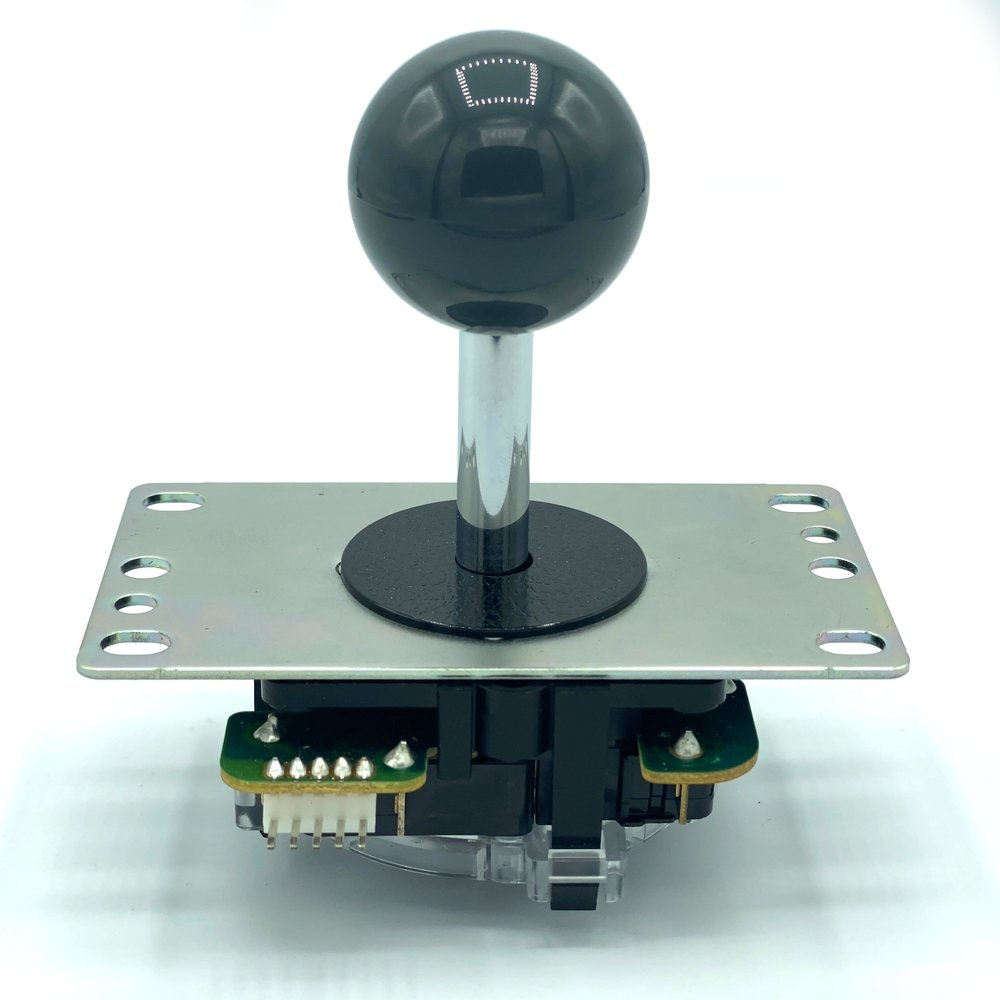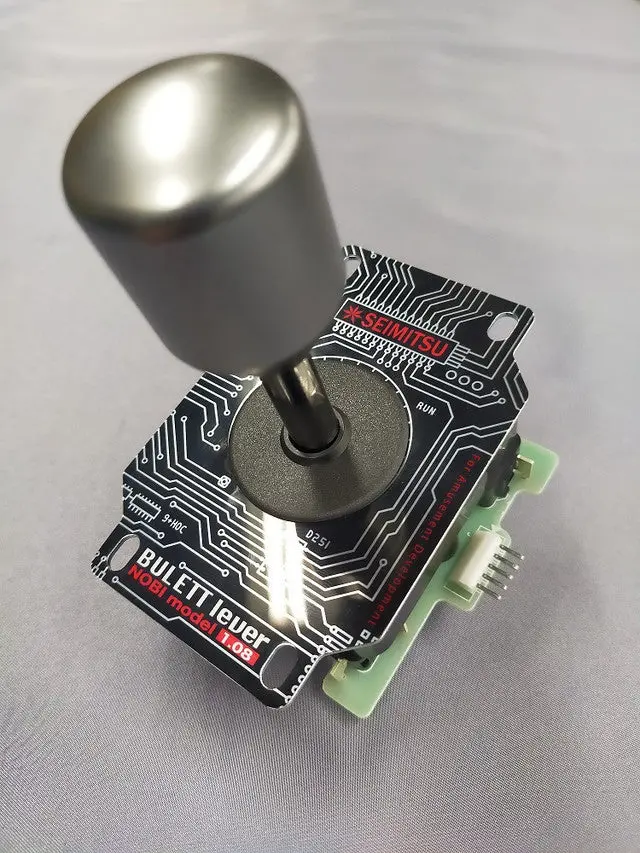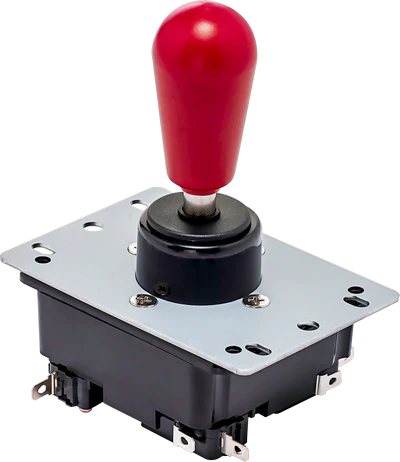So you want to build a fightstick?
Before we get started!!
toppers and dust washers are interchangeable between the vast majority of levers, even if their shape is different. Shaft covers are a different story, since their diameter varies a lot between brands and models.
Japanese Levers
In Japan, there are a couple big players in the arcade lever industry. Those are: Sanwa and Seimitsu! Thankfully, as far as installing them is concerned, the differences are negligible. It's all in the feel and the components. Both brands:
- use springs to return the lever to neutral
- have restrictor gates
Now let's get particular!
Sanwa
The Sanwa JLF is the quintessential arcade lever. It's the most popular one by far. I'm not gonna tell you every little thing about it because that'd be exhausting. All you really need to know is that the restrictor gate is really simple to swap out, to the point that tools are not necessary. You can get a rounded square, an octagon, a circle, and more other stuff to your tastes. Go do some snooping online. Sanwa has other models too. In 2024 they released an update to the JLF, the JLX, so that's a thing. Can't say I know much about it.
 |
| A Sanwa JLF joystick. |
Seimitsu
Seimitsu levers. There are a good handful of models. They're easy to install. They have their own separate kind of restrictor gates. It's a brand-specific thing.
 |
| The Seimitsu Nobi lever! |
Korean Levers
In South Korea, arcade levers are different from their Japanese counterparts in a few key ways. For one, they mostly forgo the five-pin connection, meaning that one has to connect wires directly to switches on these levers. See the [[wiring]] section for more on that. Instead of springs, Korean levers use rubber grommets to return the lever to the neutral position. Most Korean levers tend not to have restrictor gates.
Last but not least, Korean levers usually have collars! Some collars are tall, and others not so much. This is important to keep in mind when you're building a stick, because tall collars will not fit in enclosures meant for Japanese levers (which is most of them, btw) unless you widen the hole!
 |
| A Taeyoung Fanta lever! See that collar!? |
Installation
Installing these is real simple. You just screw them in at the four corners. BUT!!! Be careful if you have an acrylic enclosure! Screwing things in too tightly WILL break it!


